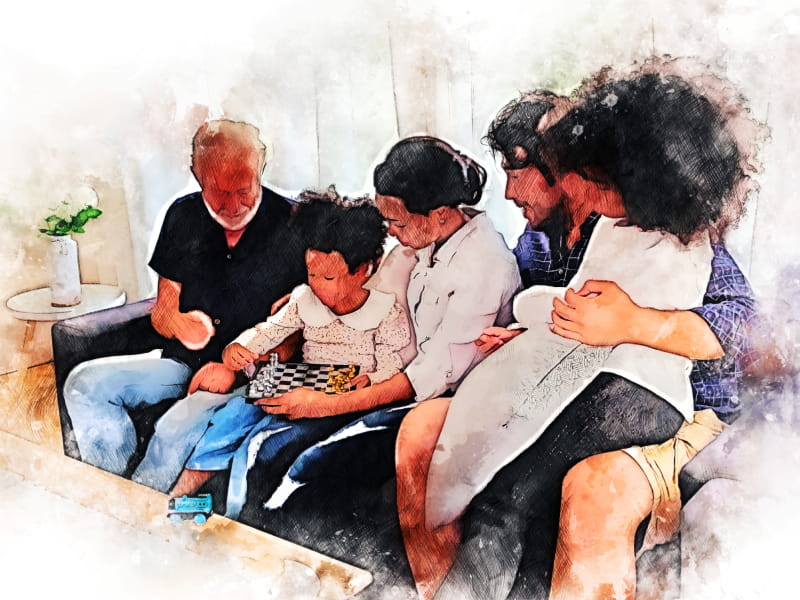How PMTO Can Help
PMTO can give you the skills you need to overcome child behavior problems and promote a cooperative parent-child relationship.
Who can benefit from PMTO?

PMTO is tailored for serious behavior problems for youth from preschool through adolescence.
- Overt antisocial behavior (noncompliance, aggression, defiance, hyperactivity, fighting)
- Covert antisocial behavior (lying, stealing, truancy, fire setting)
- Internalizing problems (depressed mood, peer problems, deviant peer association)
- Delinquency
- Substance Abuse
- School Failure
PMTO can be applied to families with multiple problems:
- Parents with psychopathology (depression, anxiety, antisocial)
- Adverse contextual problems (poverty, poor neighborhoods, health problems)
- Family transitions (divorce, re-parenting, moves, new births, deaths)
- Marital conflict
What is PMTO?

Parent Management Training Oregon model, developed by Gerald R. Patterson and his colleagues at the Oregon Social Learning Center, is an evidenced based best practice approach that recognizes the vital role parents play as being the primary change agents within their family. Parents are supported and encouraged as they learn skills they can utilize to provide appropriate care, instruction and supervision for their children. Specialists utilize role-play and problem solving to promote the development of parents’ skills. Sessions with parents are structured yet flexible to deal with specific family needs and crises as they arise.
PMTO Core Parenting Practices:
Encouragement: Parents encourage their children to demonstrate positive behaviors.
Limit Setting: Parents remain consistent in their delivery of effective consequences in order to promote pro-social behavior.
Problem Solving: The family system works together in setting goals, brainstorming, evaluating solutions and carrying out plans.
Monitoring: Parents track children’s whereabouts and ensure adult supervision for activities.
Positive involvement: Parents show love and concern for their children by providing positive attention and participating in activities with children.
PMTO Supporting Parenting Practices:
Directions: Promotes children’s cooperation and helps parents stay focused on the positive.
Tracking: Notes progress of what is working and what may need to be adjusted for success.
Emotional Regulation: Learning ways to maintain a well-regulated emotional state to cope with everyday stress and be available for learning and interactions.
Communication: The best parent-child relationships are characterized by lots of positive communication and interaction.
In order to assist specialists with learning, and staying certified in PMTO, sessions are recorded. These videos primarily focus upon the efforts of the specialist; however, the family is included in the recording. Videos are seen by trainers and coaches in order to provide coaching regarding the implementation and sustainability of PMTO. Specialists are encouraged to participate in individual and group coaching sessions, which provide praise and support as well as the opportunity to problem solve various situations they may encounter. These videos are also utilized to ensure the fidelity of the PMTO model is upheld, and families are receiving the best possible service.
How can I get PMTO?
Find a participating agency that provides PMTO or learn more about PMTO tools at MI Parenting Resource.